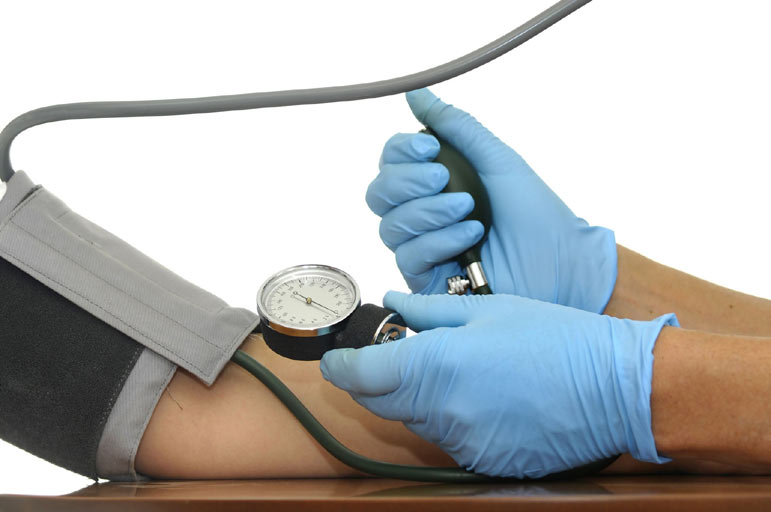
DEAR MAYO CLINIC: My mom, who's in her 80s, is on medication for Parkinson's disease and for high blood pressure. Over the last few weeks, she's developed a condition called orthostatic hypotension and is experiencing extremely high blood pressure upon waking in the morning, and then a sudden drop at times. She often feels very faint. How did she get this? Is there any treatment, and if so, will it interfere with the Parkinson's treatment?
ANSWER: Orthostatic (postural) hypotension is a form of low blood pressure that happens when you stand up from sitting or lying down. Several possibilities may explain why your mother has developed orthostatic hypotension. The condition is not uncommon in people who have neurodegenerative disorders, such as Parkinson's disease. It also may be related to her high blood pressure treatment, or it might be the result of her Parkinson's medication. And, it could be a combination of all three.
Ordinarily, when a person stands up blood tends to pool in the legs. The body compensates for this by increasing the heart rate and constricting blood vessels, thereby ensuring that enough blood is sent to the brain. But in people with orthostatic hypotension, the compensating mechanism fails. Instead, when they stand up their blood pressure drops, often leading to light-headedness, dizziness, headaches, fatigue, cognitive difficulties, blurred vision or even fainting.
A person can develop orthostatic hypotension for many different reasons. It could result from something as simple as dehydration and deconditioning, or the cause may be as complex as a nervous system disorder, such as Parkinson's disease. Your mother's situation is complicated because several factors could be contributing to the development of her orthostatic hypotension.
First, in some cases, orthostatic hypotension can result from overmedication for high blood pressure, or it may be a side effect of medications such as antidepressants. It's possible that an adjustment in your mother's blood pressure medication could alleviate the problem.
Second, orthostatic hypotension is often associated with Parkinson's disease, because Parkinson's can disrupt a person's autonomic nervous system. This part of the nervous system controls the action of the heart, blood vessels, sweat glands and other involuntary functions within the body. Another possibility is that your mother may have an atypical Parkinson-like condition, such as multiple system atrophy or Lewy body disease. These disorders are often associated with more significant autonomic nervous system dysfunction.
Third, some medications for Parkinson's disease -- such as those that combine levodopa and carbidopa (Sinemet, Parcopa, Carbilev) -- may make orthostatic hypotension worse.
It's important that orthostatic hypotension be addressed because people who have the disorder are at high risk for falling as a result of fainting or weakness. This is of particular concern for older adults, such as your mother, who are more likely to suffer serious injury from a fall than are younger people.
To find out what's behind her orthostatic hypotension and to determine an appropriate treatment plan, I'd recommend your mother talk with her doctors to review her current medications, as well as assess her Parkinson's symptoms. Because Parkinson's is a progressive disease, it's not uncommon for the benefits of Parkinson's drugs to diminish or become less consistent over time. A change in her Parkinson's treatment, an adjustment to her treatment for high blood pressure, or both, may be necessary to eliminate orthostatic hypotension.
Her doctors may also recommend lifestyle changes, as well as medication, to improve her orthostatic hypotension. For example, drinking plenty of fluids, drinking little or no alcohol, avoiding walking during hot weather, and standing up slowly may reduce orthostatic hypotension. Exercises that strengthen the calf muscles may also help. In some cases, compression stockings may reduce pooling of blood in the legs and decrease the symptoms of orthostatic hypotension. If these strategies are not sufficient, her doctors may need to prescribe medications to counteract the fall in blood pressure. None of these options will have a negative impact on your mother's Parkinson's symptoms or therapy. -- Paola Sandroni, M.D., Ph.D., Neurology, Mayo Clinic, Rochester, Minn.
Comment by clicking here.



 Contact The Editor
Contact The Editor
 Articles By This Author
Articles By This Author